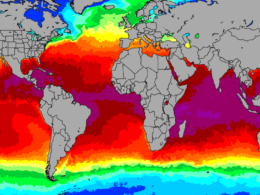By Chinaworker.info
As expected these governments used this opportunity to ramp up pressure on China and Russia. A guest appearance by Ukraine’s leader Volodymyr Zelensky was staged to drum up more Western military aid for Ukraine as its long-expected offensive draws closer. Among other things the G7 pledged coordinated action against China’s “economic coercion” and for the first time condemned China’s activities in the East and South China Seas.
Hiroshima is the home town of Japanese PM Fumio Kishida, whose country currently holds the rotating presidency of the G7. The city was destroyed by a US nuclear attack 78 years ago, providing a chilling setting for this gathering of US-led imperialist powers, the aim of which was to project — from within its own “backyard” — an even more concerted military, economic and technological push back against Chinese imperialism. The following article is from a speech given by Vincent Kolo to the Marxist Academy organised by ISA members in China, Hong Kong and Taiwan on 3–4 June:
The new era is characterized by a global imperialist power struggle, militarism and preparations for war.
2022 was a turning point, the Ukraine war accelerated all processes. The two imperialist blocs, based on the US and China, were consolidated. The gap between them widened. Russia’s invasion of Ukraine gave US imperialism a huge advantage to push back against China, not only Russia. The US strengthened its leadership of the Western bloc, expanded NATO and massively increased militarization.
In 2023, Xi Jinping’s dictatorship has launched numerous diplomatic manoeuvres to try to recover the ground it lost in the Cold War due to the pandemic, China’s economic crisis, and the Ukraine war. Two key aspects of this strategy are to stoke divisions between European and US imperialism and to mobilize support from the “global south”.
Three quarters of the world’s population live in countries whose governments are either “neutral” or oppose the US line on Ukraine. In Africa, Asia and Latin America there is widespread skepticism and distrust of the US. This is fully understandable when US wars launched after “9/11” have killed 4.5 million people and created 50m refugees.
China is also the main trade partner and lender to many of these countries. Beijing politically portrays itself as a “peacemaker” and an opponent of US bullying. Economically, the CCP sees these so-called developing markets as its Plan B, as Western decoupling accelerates.
“De-risking”
The US and the recent G7 summit renamed “decoupling” to “de-risking” which is the word the European capitalists prefer. The content is the same, it is largely just a “word game” as Beijing Review said. The argument is that “de-risking” is a more targeted and selective strategy mainly focused on technology rather than wholesale “decoupling” from China. Biden’s government has no problem to adopt the European “translation” — it doesn’t mean a change of direction.
Part of Xi Jinping’s counter-strategy has been to double down on China’s “no limits” partnership with Russia, as shown by his March visit to Moscow. But this also undermines another aspect of CCP policy: to try to rebuild its lost influence with Europe. That is one of the reasons why Xi launched a completely empty and dishonest “12-point peace plan”. This is so the CCP can pose as a mediator, while it knows negotiations have almost no chance of succeeding in the short-term. This is just a propaganda weapon the CCP can use among the Chinese people, also in the “global south” and to a lesser extent in Europe.
The alliance with Russia involves economic factors, but above all the CCP needs to show, especially in the “global south”, that it can head a “strong” alternative to the US-led bloc. Both imperialist blocs are frantically recruiting to their side.
At the G7 Hiroshima summit the guest countries included South Korea, Australia, India, Vietnam and of course a special appearance by Zelensky, which was used to galvanize more arms and aid to Ukraine. China wants to develop the BRICS (Brazil, Russia, India, China and South Africa) beyond today’s “talking shop” into a real economic bloc.
19 countries want to join BRICS, including Argentina, Egypt, the UAE and Indonesia. But talk of a BRICS currency, or even the Chinese RMB, to challenge the dollar’s dominance is completely fanciful in the short term. Even for BRICS to develop into a real economic bloc will prove very hard because of the deepening antagonisms between the world’s most populous nation, India, and its second most populous nation, China.
China is also promoting forums like the Shanghai Cooperation Organization (SCO) and Xi’s recent summit with Central Asian governments (C+C5). These are closely related to china’s Belt and Road Initiative (BRI), and here is the Achilles heel: China’s overseas loans and “cheque book diplomacy” are running into big trouble. There is a debt crisis in the BRI, with China forced to spend 240 billion US dollars on bailouts to 22 countries since 2008. The CCP faces an internal and an external debt crisis at the same time: from Guizhou to Ghana and from Wuhan to Sri Lanka.
China and Russia
China’s alliance with Russia is also strategic in the event of a Taiwan war. The bottom line for Xi Jinping is that he must avoid an all-out Russian defeat in the Ukraine war. The fall of Putin would have hugely negative geopolitical and domestic impacts for the Chinese dictatorship. While it is unlikely Russia can win, one outcome after a long war could be a stalemate and a “Korean-style” solution, with Ukraine divided into a smaller Russian — and larger NATO-controlled zones. For Xi Jinping this would be acceptable.
The Washington Post said the current world situation is “like 1914 with nuclear weapons”. The Financial Times says some top US officials put the chances of war with China at “more than 50 percent”. A Taiwan war would run a very high risk of escalating and drawing in other powers, effectively becoming World War 3.
ISA does not believe the risk of war is high right now. But the situation is increasingly dangerous because the wider Cold War is escalating. The Ukraine war was a wake-up call which caused the CCP to reevaluate some of its most outlandish “wolf warrior” ambitions regarding Taiwan. Also, in the US there is a power struggle between hawks and “realists”. Republican leader McCarthy’s decision not to visit Taiwan, but to meet Tsai Ing-wen in California, was a sign of a more cautious stance.
A Taiwan war would be hard to contain as a purely naval or island-only war. It is not the same as Ukraine where the war has — so far — been “localized”. Even in Ukraine’s case, it is not ruled out that developments can spiral into a bigger European war.
If the US joined a war on Taiwan’s side — as is highly possible — there would be pressure from a military perspective to attack China’s coastal missile batteries. To attack Chinese territory in other words. The same logic applies for the PLA (China’s military): To protect its navy from US attacks there would be pressure to strike at US military bases in Guam, Japan, even South Korea. This year’s military agreement between the new Philippines president Marcos and Washington puts US troops into bases just 500km to the south of Taiwan.
From this brief summary, we can see how several imperialist powers and their underlings can be drawn into a Taiwan war. The self-destructive capacity of today’s capitalism and imperialism is unprecedented. The climate crisis shows one side of the existential crisis facing humankind. The US-China conflict and the danger of nuclear annihilation shows another even more acute existential crisis.
Taiwan is central
Japan is doubling its military budget by 2027. Its post-war “pacifism” is in reality dead. The right-wing Japanese government plans to position 400 US-made long-range missiles in the next few years that can strike anywhere in China.
The two imperialist blocs are preparing for war. At the same time neither side wants war. But we cannot trust the capitalist class to defuse this crisis. Kishida got the G7 in Hiroshima to include in the final communiqué that Taiwan’s security is “critical for the whole international community”. French President Macron was of course one of the signatories at the G7. This is the same Macron who recently said vis-à-vis Taiwan that Europe should not “get caught up in crises that are not ours”.
ISA has stressed this is a completely new era. It ends more than 30 years of neoliberal capitalist globalization, in which national states tended to take a back seat and give “markets” a largely free hand to drive policy. Now the state drives economic policy. Markets have lost significant power to the capitalist state.
The Cold War is of course nothing to do with “democracy” or “autocracy”, which are secondary tactical considerations for the capitalists. It is about power: Who will have the greatest control over the global capitalist system? The Western imperialist nations feel this power slipping away.
State capitalist Cold War policies
Massive state capitalist programs are now on the table, like the “CHIPS and Science Act” and “Inflation Reduction Act”. These policies aim to rebuild an industrial base in the US and among its “friends”. Taiwan’s TSMC is building a microchip plant in Arizona, which at US$40bn is probably the biggest ever factory investment in the US.
This is accompanied by protectionist measures that completely reverse many of the policies of the capitalist globalization period 1990–2008. Biden’s export controls on the sale of advanced microchips is the most serious attack on China in the tech war. Of the advanced microchips used in the most hi-tech sectors of China’s economy, such as robotics and A.I., more than 90 percent contain American components. These are now banned under Biden’s export policy.
Next the US will soon announce new bans on US capitalists investing in key technological areas and companies in China. The US criticizes China’s “non-market practices” but of course it is doing exactly the same. The aim is to degrade China’s economy and starve its most technologically advanced sectors, especially military technology.
While these are not quite Russia-level sanctions they are extremely severe. This policy is likely to escalate further: The Chinese government last week banned Micron, the biggest US microchip company, from selling its products to infrastructure projects in China on “national security” grounds. It is hard for Biden not to reply over Micron, with an election year coming up. So, a new tit-for-tat cycle has begun.
The US microchip sanctions are equivalent — on a higher level — of when the U.S.S.R. withdrew all its 20,000 technical advisors from China in 1960, at the start of the Sino-Soviet split.
Blocs established
The US-China strategic rivalry is what now drives world politics and the economy. It would be wrong to think the blocs are still fluid, not yet clearly formed. That would be living in the past. Of course, not all imperialist bloc members move at the same speed. There are tensions, manoeuvres and intrigues among the allies. On some issues, Japan is more hardline even than the US. On other issues less so.
Within the EU, Germany and France are under pressure to maintain “European unity” i.e. their control. They feel pressure from many Eastern EU states who are politically more aligned with US imperialism. Macron says Europe could become a “third pole” globally, separate from the US. But as a leading German politician said, “that’s a pipe dream”.
Geopolitics dominates over economic issues for the leaders of the main imperialist powers. The G7 in Hiroshima issued its most hardline statement against China so far. The most important immediate consequence of the summit was to green light sending US-made F-16 fighter jets to Ukraine. Biden opposed sending F-16s until now because the US wants to limit the ability of Ukraine to extend the war into Russia. This risks turning the proxy war into a direct war between Russia and the West. The US now fears it must go further or lose momentum to Russia. Biden also feels pressure from the coming election.
The G7 is known as the “rich countries’ club” (US, Japan, Germany, Britain, France, Italy and Canada). These countries account for 44% of world GDP today compared to almost 70% of world GDP when G7 was formed in 1973. They only account for 10% of the world’s population.
The G7 slid into irrelevance for much of this century, before the new Cold War gave it back a major role. When the global financial crisis struck in 2008, the big capitalist governments were still able to cooperate mainly through the G20, with both China and the US at the top table.
There was even talk of a “G2” — China and the US — because the interests of the two regimes seemed to be so closely interconnected. That time has passed. The G20 is now an irrelevance because it includes the US, China and Russia, so it is paralyzed like the UN, where one bloc “vetoes” what the other wants.
Internationalism
What then are the tasks of Marxists in the new era? We need to develop Marxist cadres who can build our party in future struggles. This can only happen with a clear understanding of perspectives. We always begin with international perspectives, not only looking at processes in our own country.
The Cold War includes powerful pressures from nationalism, racism and to “choose a side”. The Stalinist-influenced left usually lines up behind one bloc: China-Russia. Some other left organisations give de facto support to the US-led bloc and NATO. The Stalinists never had confidence in the international working class, which is the root of Stalinism in the U.S.S.R. in the 1920s — abandoning Lenin and Trotsky’s perspective of world revolution. ISA comrades need to have consistent internationalism in our very backbone.
We fight against the trap of the “lesser evil” — supporting one capitalist or imperialist force against another. We stand for an independent working class position in all questions. This is not easy or automatic. It requires theoretical clarity and democratic discussion to reach a common analysis.
Capitalism is a desperately sick system. It threatens the planet’s very existence. A new labour movement will be built in the titanic mass struggles ahead. With the genuine ideas of Marxism, the international working class will be equal to history’s challenge.












